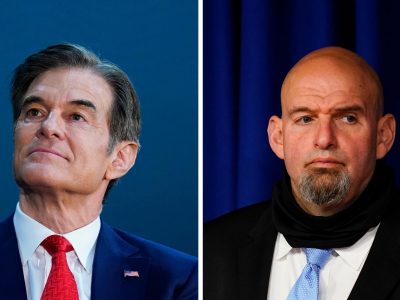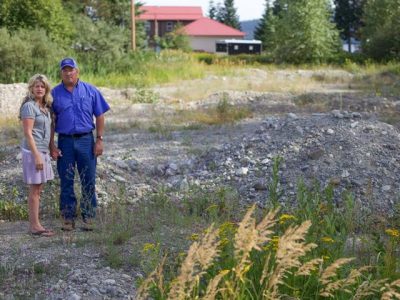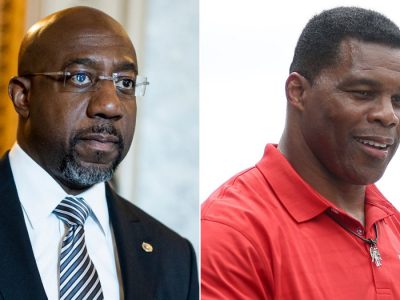What Do Pig Pens Have To Do With Environmental Law?
Constitutional Challenge to California's Animal Welfare Law Could Have Profound Impacts on State's Environmental Laws
Today the U.S. Supreme Court will hear oral arguments in an animal welfare case from California that could have profound, negative impacts on a host of the Golden State's environmental laws and policies. The case is National Pork Producers Council v. Ross, No. 21-468. The National Pork Producers Council litigation arises from an initiative measure--Proposition 12--that California voters passed overwhelmingly in 2018. That measure is one of a series of animal w...
CONTINUE READINGNational Parks, Climate Change, and Active Management
When should park managers response to fire risk and climate change through active management?
This summer, the Earth Island Institute filed a lawsuit challenging active management projects in Yosemite National Park – those projects involve the cutting of trees to reduce the risk of fire (or that is the explanation of the National Park Service for the projects). The tree cutting was begun this past year, and the National Park Service asserts that the projects are urgently needed to address fire risk, prompted in part by a series of fires in and around the park...
CONTINUE READINGHow Much Is Nature Worth?
Federal Government Launches Major Accounting Initiative
When we bite into a juicy apple we may think of the farm’s orchard, but not of the natural pollinators that fertilize the apple blossom so the fruit can set. When we drink a cool glass of water from the tap we may think of the local reservoir, but the real source of the water quality lies many miles upstream in the wooded watershed that filters and cleans the water as it flows downhill. Largely taken for granted, the natural capital of healthy ecosystems provides a var...
CONTINUE READING2021-2022 California Environmental Legislation: What’s Been Enacted?
Climate change and heat bills have been signed in two packages amidst other environmental legislation at the end of the 2021-2022 legislative session.
At the close of California’s legislative session on September 1, legislators sent a number of environmental bills to the Governor for his signature, including measures to mitigate climate change, cope with extreme heat, advance the state’s clean energy goals, deal with California’s ongoing drought, decarbonize buildings, build more transit-friendly affordable housing, and conserve our natural lands. Now that September is over—and the Governor’s window to sign o...
CONTINUE READINGScenarios and Uncertainty
Imagining different futures can be the best way to think through options when we don't know the odds.
In environmental law, we're often operating at the limits of knowledge about the natural world and human behavior. Climate change is well understood in some ways, but it will set off a chain of reactions that we only partly understand. It's also difficult to predict the future of ecosystems, future energy prices, technological changes, and a host of other factors relevant to environmental law. Scenarios can be the best way to think about making choices in the face ...
CONTINUE READINGElection 2022: One Month to Go
A close election with big potential policy impacts
We’re now two months from Election Day. With control of the House and Senate at stake, the election will shape the remainder of Biden’s term, including climate policy. Biden’s ability to appointment officials and judges is at stake in the Senate. Republican control of the House would make new energy or environmental legislation extremely difficult and could leave environmental agencies under heavy fire. Let’s start with the Senate. When looked at the race in...
CONTINUE READINGSenate 2022: Pennsylvania
Two unconventional candidates face off in a crucial swing state.
This is an open seat due to Pat Toomey’s retirement. It's also an election that could go either way, though there are some signs that the Democrats may have an edge. And finally, it's probably also the Democrats' best pickup opportunity. Neither candidate comes from central casting, which makes it an especially interesting race. John Fetterman (D). The front page of Fetterman’s campaign website says: “ A different kind of Democrat. John doesn’t look like a...
CONTINUE READINGOn the First Monday in October, the Sacketts Head to the Supreme Court a Second Time
Sackett v. EPA--the Most Important Environmental Case on the Justices' Current Docket--Will Answer the Key Question of How Far Federal Wetlands Regulation Extends Under the Clean Water Act
Today the U.S. Supreme Court formally begins its 2022-23 Term. First up on the justices' docket this morning is a major environmental case: Sackett v. Environmental Protection Agency, No. 21-454. This year marks the 50th anniversary of the Clean Water Act (CWA). Over the past half-century, no single CWA issue has proven more contentious and difficult to resolve than determining the extent of the nation's waters that are subject to CWA permit jurisdiction. Th...
CONTINUE READINGSenate 2022: Georgia
The environmentalist incumbent faces a tight race.
Georgia is a toss-up state that both parties view as a must-win. I suppose it says something that both candidates for the Georgia Senate are Black, which may be a first for a Southern state, or perhaps anywhere. GOP insiders are reportedly concerned about their candidate’s ability to mount a successful challenge to the incumbent. But name recognition and a Trump endorsement may be enough to carry the day for them. Raphael Warnock (D). Warnock, the incumbent, is...
CONTINUE READINGSenate 2022: Nevada.
A tight race between two low-key candidates.
The Nevada Senate race may be more about Biden and Trump than the actual candidates. It’s another toss-up contest, though some observers see signs it may be shifting in favor of the Democrats. Catherine Cortez Masto (D). Cortez Masto’s campaign website calls her “an independent voice for Nevada who works with Democrats, Republicans, and Independents to strengthen our economy, create good-paying jobs, lower health care costs, and keep Nevadans safe.” Her Sen...
CONTINUE READING










